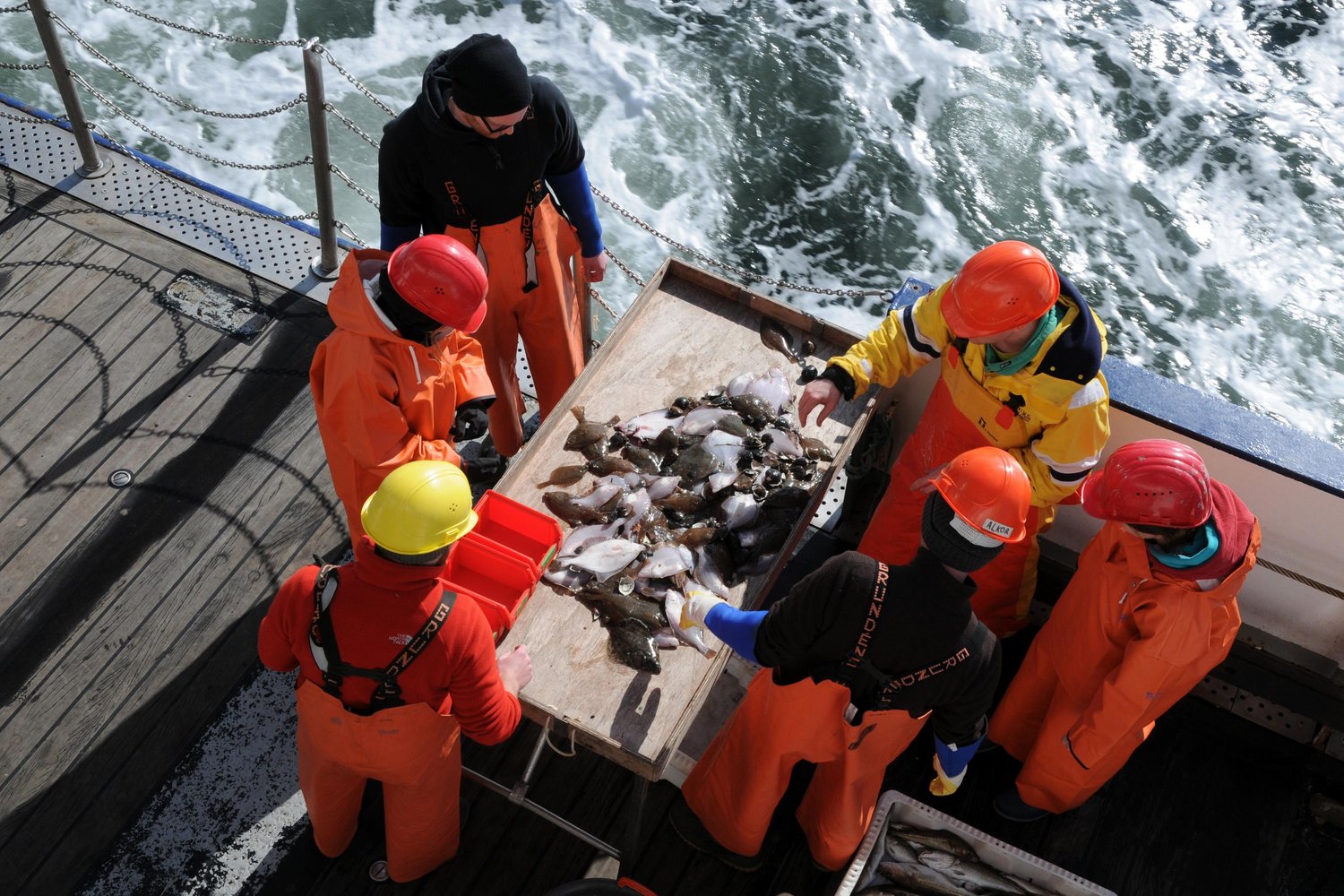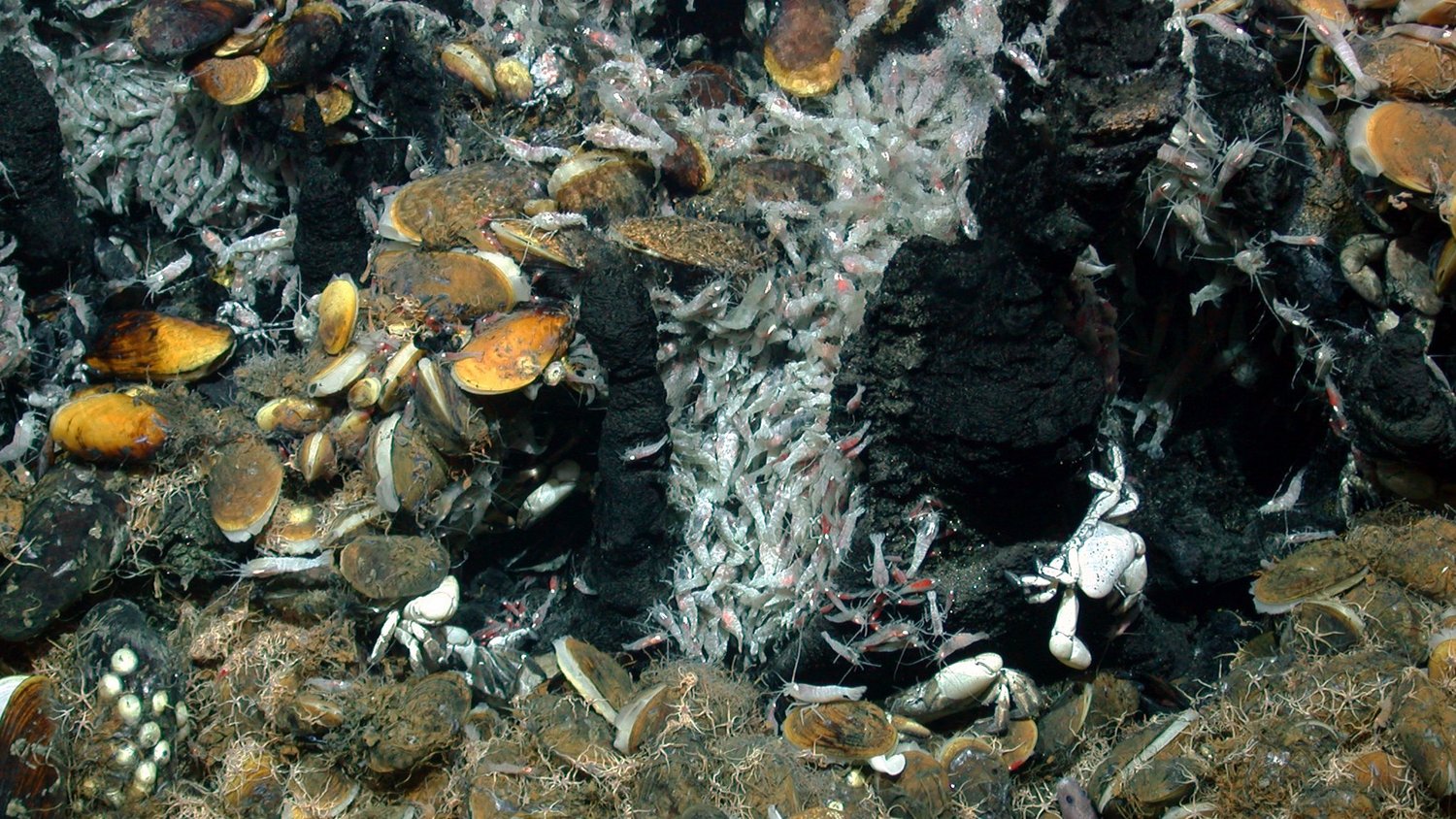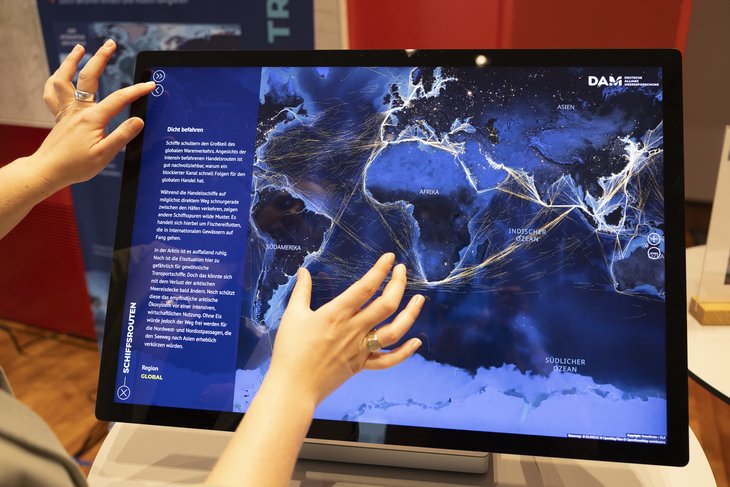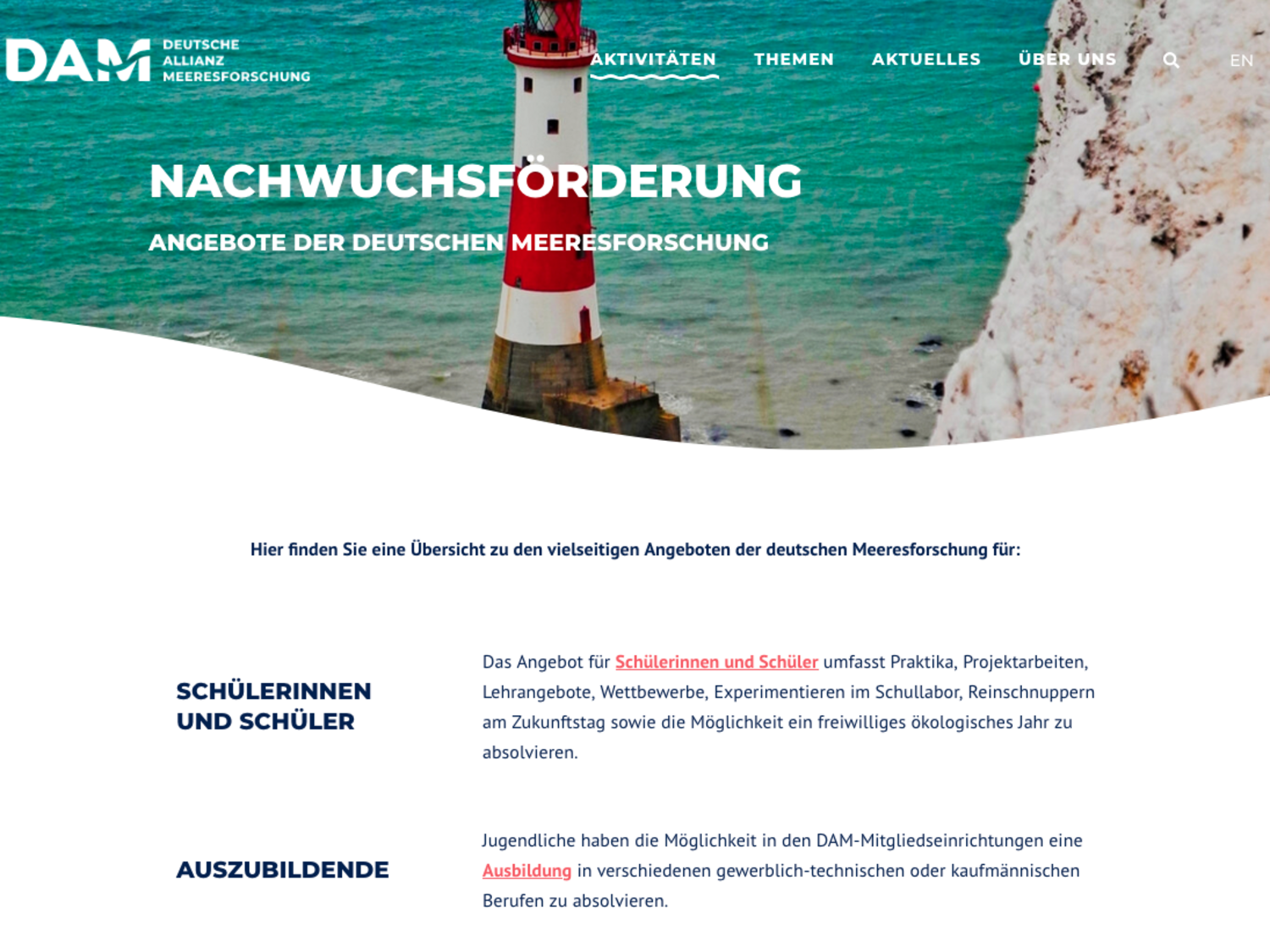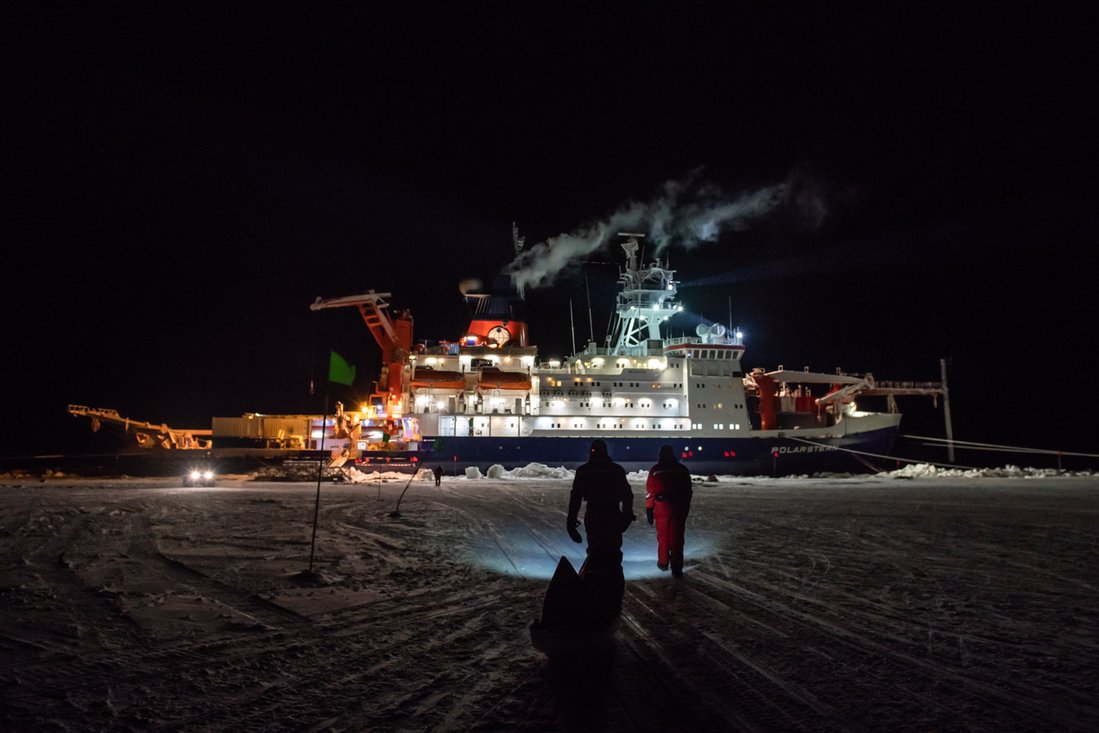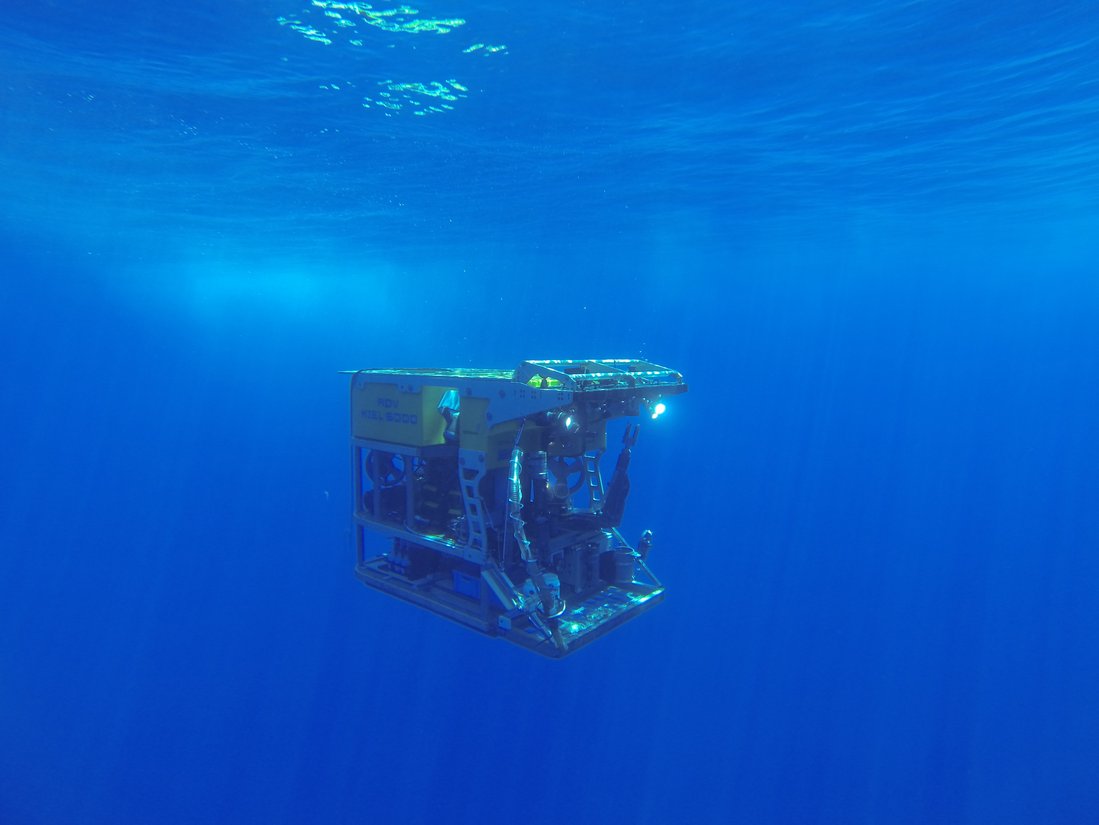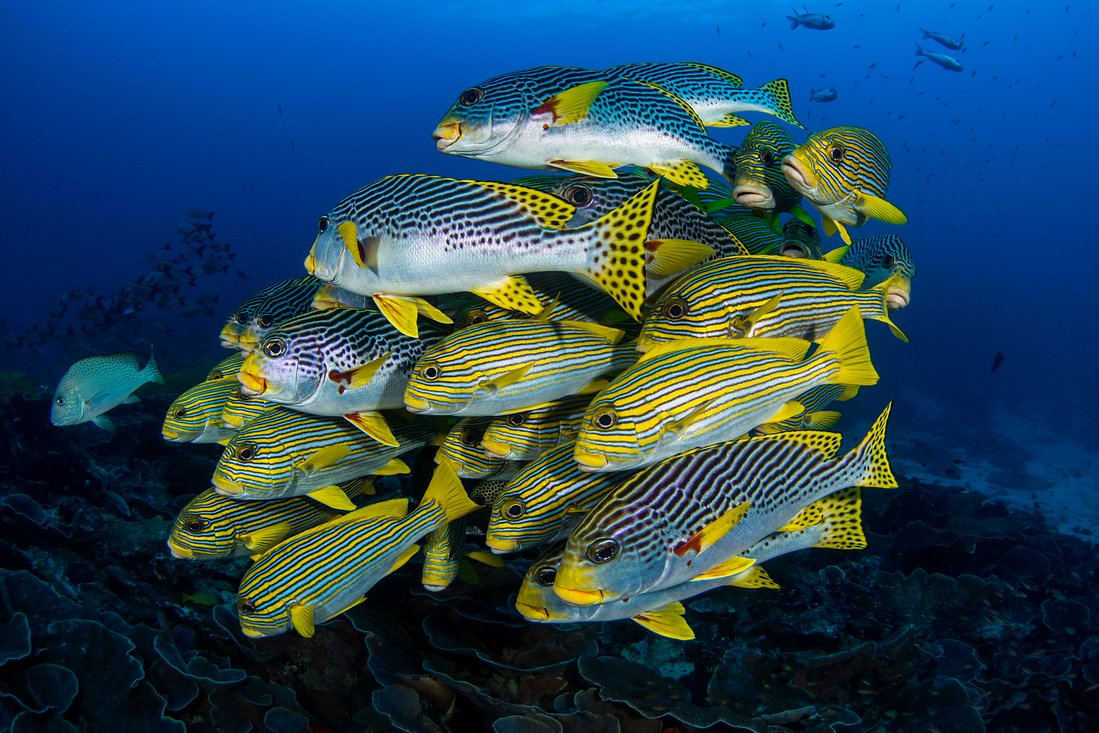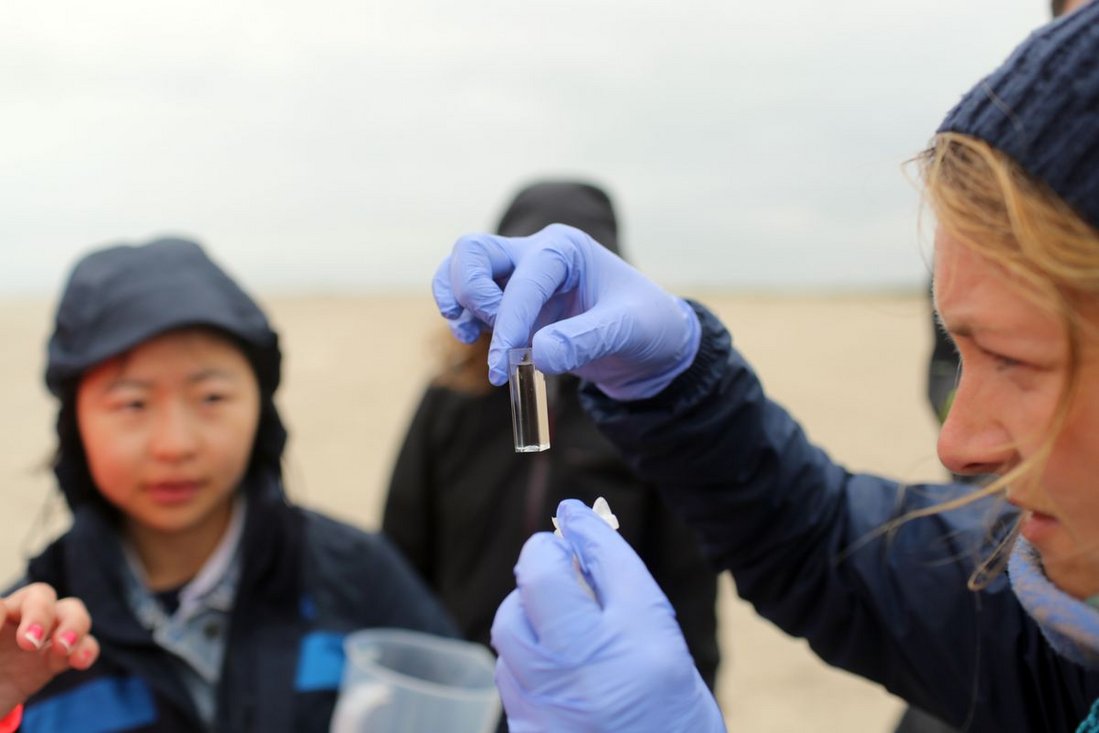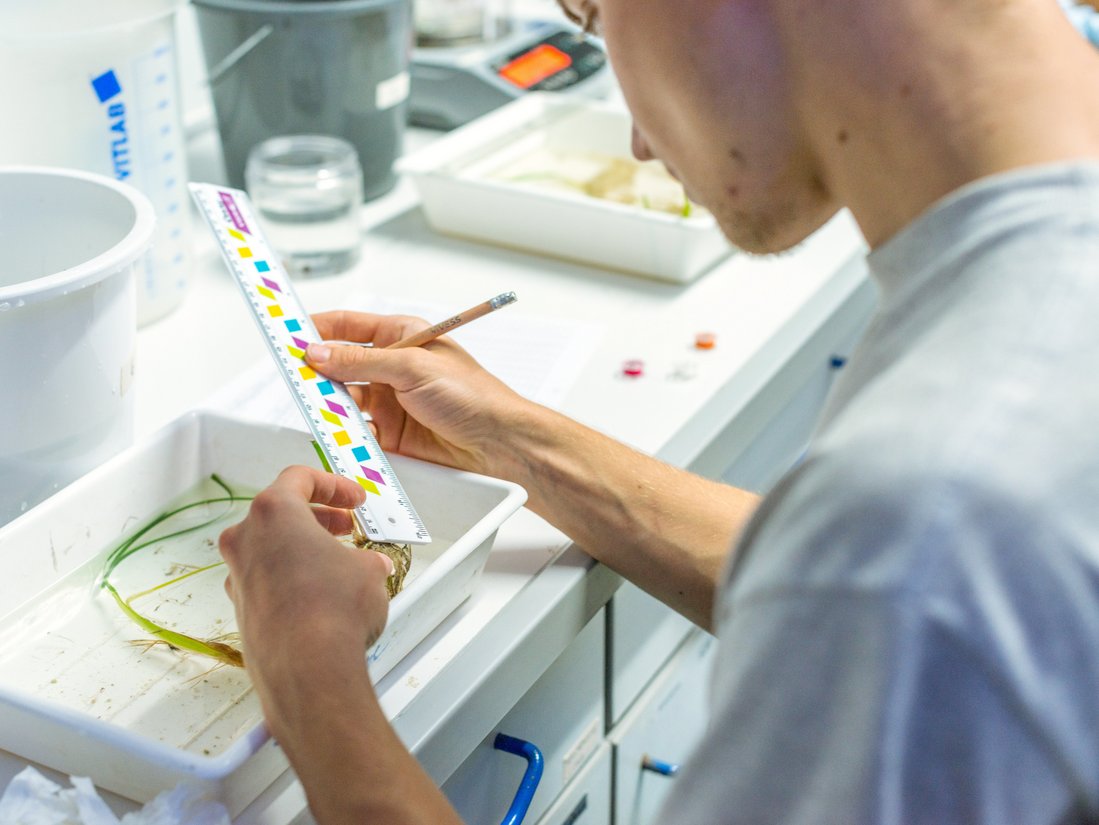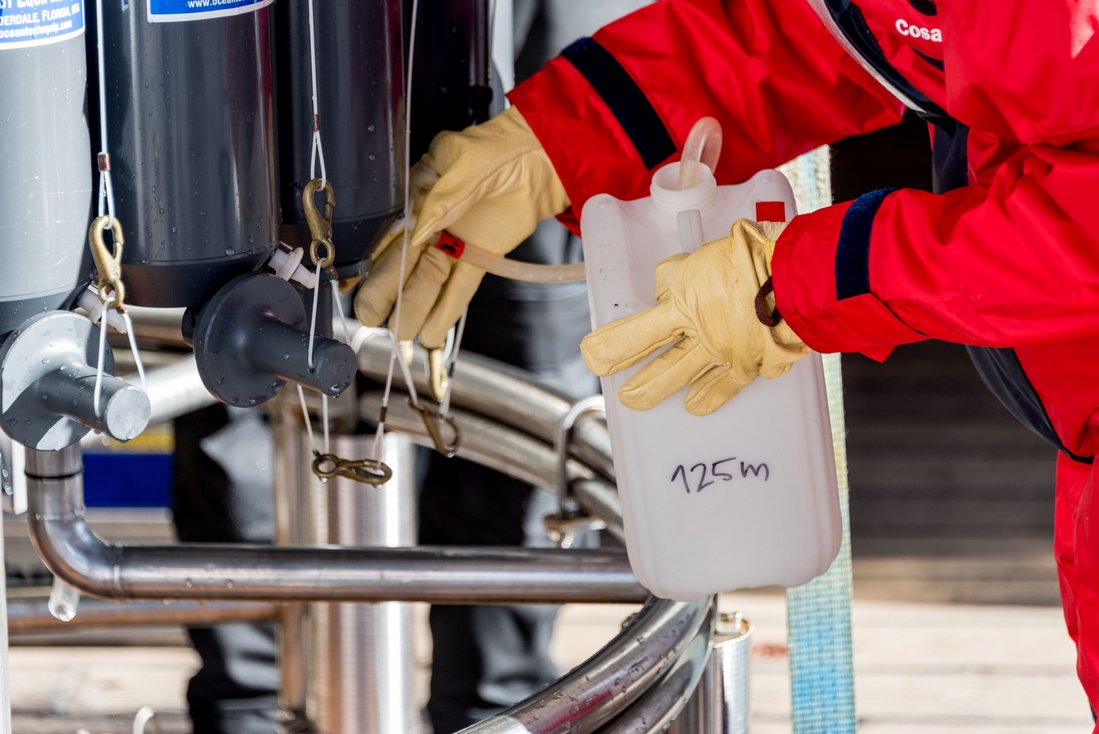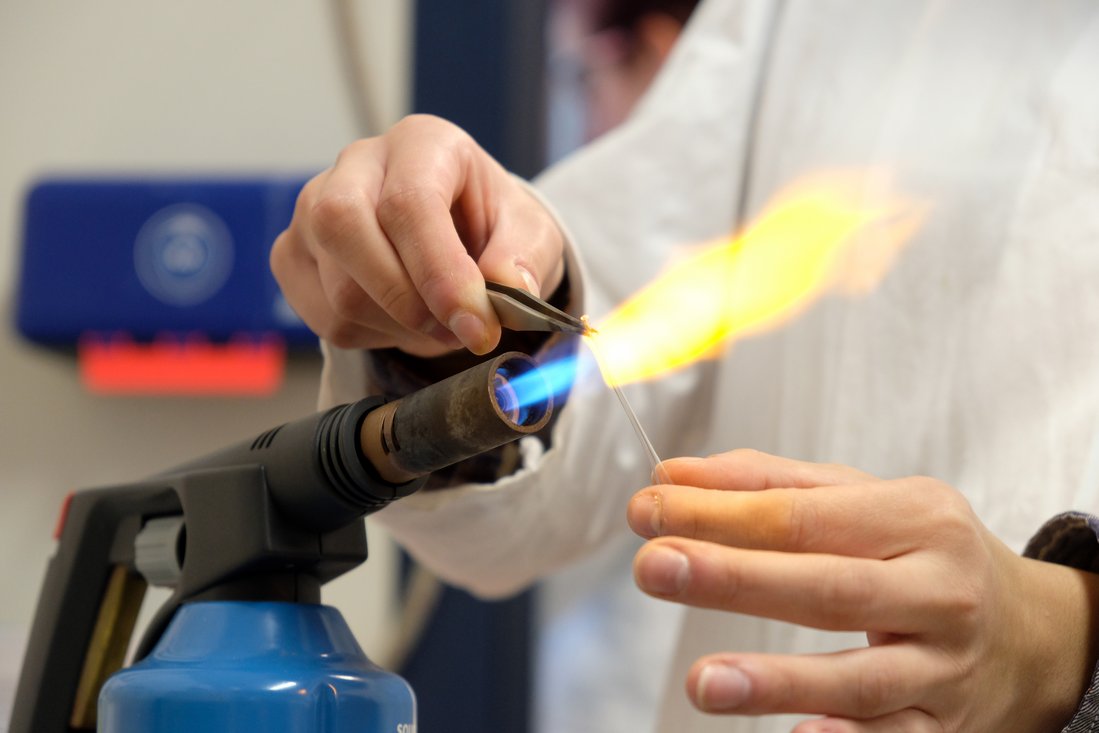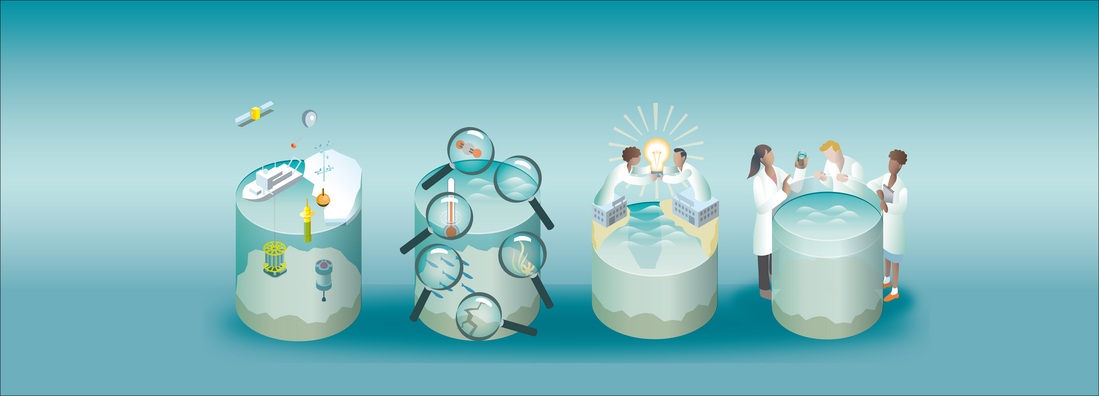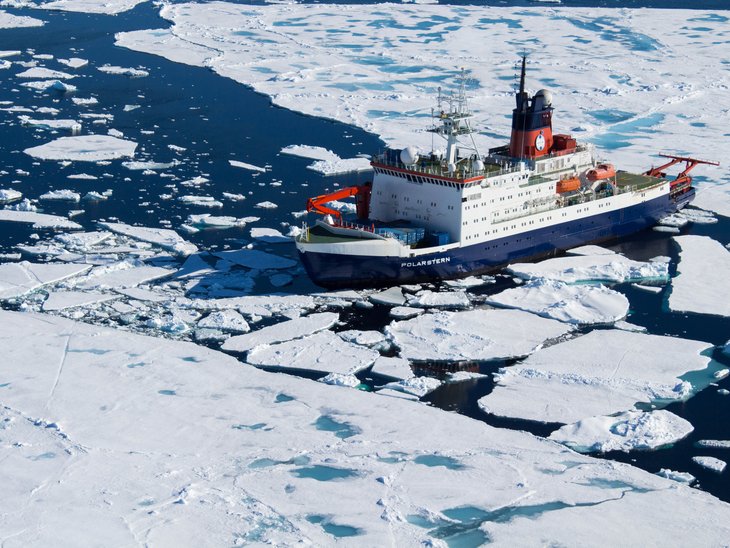
Anyone seeking to understand the climate and the foundations of life on Earth must turn the attention to the oceans. Covering two-thirds of the planet’s surface, the oceans have a profound influence on the lives of all people – even those living far from the coast. Yet despite their vital role, large parts of the ocean, especially the deep sea, remain poorly explored. Hence the oft-quoted phrase: we know more about the moon than we do about the deep sea.
In German marine research, experts are working every day to expand our knowledge of the oceans. It stands for an outstanding combination of scientific excellence, interdisciplinary co-operation and social and political relevance.
Major questions are addressed: How do the oceans influence the global climate? How can marine ecosystems be protected and utilised sustainably at the same time? How can we arm ourselves against the risks of extreme marine events and natural hazards?
No one can answer these questions alone. Therefor, marine research in Germany brings together disciplines, institutions, and infrastructures. It bridges the gap between basic and applied science and embraces its responsibility to society. In doing so, it plays a leading role on the international stage. Not only does it deliver crucial insights into the oceans and the climate, it also develops concrete options for action and practical solutions – vital insights for protecting and sustainably managing the seas, and ultimately for safeguarding the future of humanity.
2. Interdisciplinary collaboration - overcoming boundaries, understanding systems
A key strength of German marine research lies in the fact that it does not view the diverse issues surrounding the coasts and oceans in isolation, but rather thinks in interdisciplinary contexts - always with a view to the challenges of our time: climate change, species extinction, environmental pollution, resource scarcity and social change. Researchers from the natural sciences, engineering, social sciences, and the humanities work closely together to understand the complex interplay between the ocean, the climate, and human society. Their goal: to develop practical, forward-looking solutions for the sustainable use of the oceans.
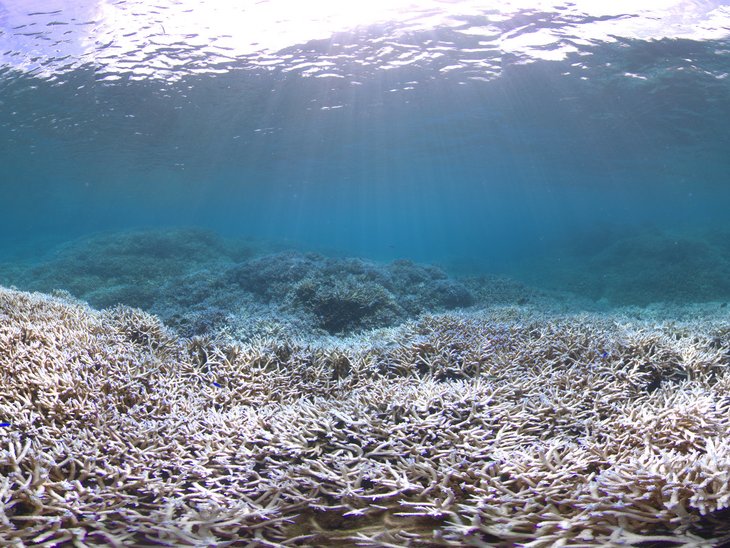
Why is this collaboration so important? Because the questions that marine research deals with are very complex and cannot be answered with the knowledge of a single discipline. To understand the climate, for instance, some experts investigate atmospheric processes, while others work on polar ice and draw on insights from microbiology. To assess the impact of pollution on the oceans, researchers from ecology, biology and chemistry must join forces. And to grasp how the oceans interact with politics and society, specialists in the social sciences, cultural studies, economics and law explore marine-related issues from their own perspectives.
It is through this broad, joined-up approach that creates a comprehensive understanding and forms the basis for problem-solving and sustainable management of the oceans.
3. Basic research - the oceans as the key to the earth system
The oceans play a key role for the climate and life on earth. Only if we understand the fundamental processes can we assess the consequences of climate change and develop strategies for sustainable management of the oceans. Basic research provides us with the knowledge we need for a future worth living.
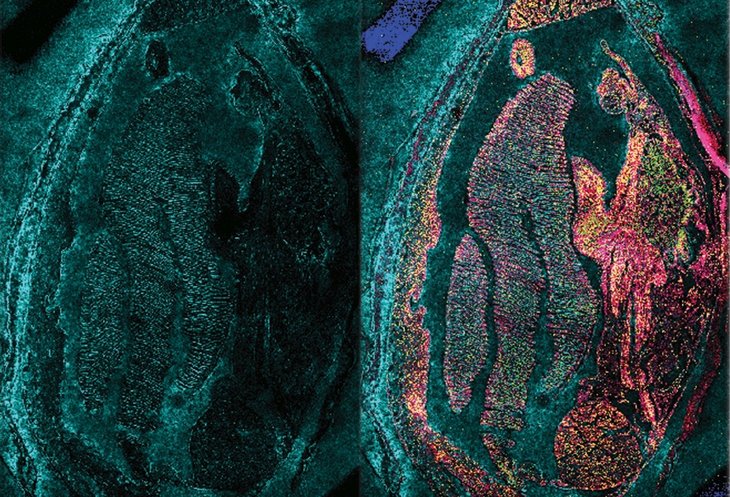
Basic research is driven by curiosity. Scientists seek to understand how the world works, without necessarily aiming for immediate practical application. Yet this kind of research lays the groundwork for future innovations and solutions. In marine science, this means exploring the oceans in all their complexity to uncover the fundamental processes and connections that shape them.
Basic research focuses on physical, chemical, biological and geological processes in all marine regions - from the seabed to the atmosphere. The researchers want to understand how ecosystems, material cycles and energy flows of the oceans function and interact with the land and the atmosphere.
One example is the polar regions, which play a key role in shaping Earth’s climate. Here, long-term monitoring stations collect crucial data. Researchers analyse ice cores and marine sediments to reconstruct the planet’s climate history. They explore the deep sea to investigate its unique ecosystems. Other major areas of focus include coastal waters such as the North and Baltic Seas, tropical coral reefs or mangroves, as well as the vast expanses of the open ocean and deep sea.
German marine research places a strong emphasis on understanding the oceans as an integral part of the Earth system. Many institutions bring together a range of disciplines under one roof - biology, chemistry, physics, geology and the social sciences all working side by side. Large research equipment, research vessels or measuring stations are used across institutes, and data and findings are exchanged and also analysed across the board.
The goal is clear: scientists aim to understand the seas not from a single viewpoint, but as a complex web of interactions between water, climate, living organisms and human activity. Basic research provides the essential knowledge needed to grasp the impacts of climate change and to anticipate how these systems might evolve in the future.
4. Applied research - innovations for society and the economy
Applied research means that scientists deliberately generate and use knowledge to solve specific problems or to develop technological and social innovations. Applied marine research plays a key role because it provides actionable knowledge - insights that can be directly used to protect and sustainably manage our oceans and coasts. In doing so, it forms a crucial bridge between the findings of basic research and the practical responses needed to tackle real-world challenges.
![[Translate to English:] Strömungskanal_TU-Braunschweig Researchers can look into the water of the water of the channel through floor-to-ceiling windows. Just like in a very large aquarium.](/fileadmin/_processed_/6/2/csm_TUBS_2404_ROT_LWI_Eroeffnung-SWS_18_d25578036a.jpg)
Researchers focus on pressing real-world issues: they explore for example how to better protect coastlines and how to use marine resources responsibly. They develop early warning systems for natural hazards such as storm surges or tsunamis, and test new monitoring technologies to detect changes in the ocean more rapidly. In doing so, they help safeguard both people and infrastructure.
Applied marine research places strong emphasis on close collaboration between science, public authorities, industry and policymakers. Researchers advise decision-makers, provide vital data, and develop recommendations to ensure that actions (such as marine conservation or harnessing energy from wind and waves, among many others) are firmly grounded in science. Their solutions are tested directly in the field, aboard research vessels or in coastal laboratories, and are adapted to meet practical needs.
5. Research infrastructure - access to the extremes
German marine research has an infrastructure that sets international standards. Specialised research vessels, aircraft, observatories, autonomous or controlled underwater vehicles and diving robots as well as research stations in the Arctic and Antarctic enable German scientists to collect data even under extreme conditions.
Analyses are carried out in laboratories with state-of-the-art equipment; high-performance computers enable the evaluation of huge amounts of data. Large-scale experimental equipment such as the large wave channel (GWK+) enables the simulation of ocean processes on land. In the equipment halls, technicians assemble customised measuring devices that can withstand high water pressure, salt water, strong currents and temperature fluctuations, even over long periods of time.
The infrastructure required to explore the oceans is expensive and complex. Large research vessels, specialised equipment and laboratories are only available to a limited extent and are therefore shared by many researchers from different research institutions and disciplines. The infrastructure is also open to international partners, making Germany a globally sought-after player in marine and polar research.
6. Data management - quality thanks to FAIR principles
The processing and management of the data collected in Germany follows an increasingly coordinated and digitalised approach: the data is first checked for quality, standardised and provided with metadata. This is done according to the FAIR principles, i.e. research data should
- be findable,
- be accessible,
- be interoperable, so that comparable data can be analysed and integrated using a common vocabulary and common formats,
- be reusable, for example by other researchers and the public.
A large amount of data is now archived in specialised databases or centres such as PANGAEA, WDC Climate or as part of the MareHub initiative and is available via the central German Marine Research Data Portal (www.marine-data.de). The data portal bundles data from various sources such as research vessels or observatories and offers tools for visualisation, analysis and download. The data is both archived and in some cases can be accessed almost in real time.
Workflows and infrastructures are constantly being developed to optimise data integration, validation and publication. National and international standards are taken into account.
The transfer area focuses on two main topics: The transfer of knowledge and the transfer of technology. Knowledge transfer is an exchange in which findings from marine research flow into society, politics and business and findings from practice find their way into research. Employees from the research institutes advise decision-makers, develop solutions and concepts together with practitioners, develop educational programmes and offer opportunities for public participation. Transfer is the bridge from research to society.
Knowledge transfer is not a one-way street from research to society. Conversely, socially relevant questions and perspectives flow into research through dialogue with non-scientists. This dialogue with social actors and stakeholders is also an integral part of German marine research - because this is how viable and realistic solutions for the protection of the oceans are developed.
Technology transfer to industry is playing an increasingly important role. This primarily involves the transfer of innovative technologies and services as well as specific knowledge into application. This approach aims to translate innovations into concrete economic utilisation and thus promote growth, competitiveness and social progress.
8. International reach - high reputation abroad
German marine research is highly active on the international stage, working in close cooperation with partner organisations around the globe. German institutions:
- participate in international research projects
- contribute to European research programmes
- provide impetus for international cooperation
- are significantly involved in the World Climate Reports
- promote the exchange of scientists across borders
- share knowledge, data, and methodologies
- participate in global initiatives for the protection and sustainable use of the oceans.
This strong international cooperation is not only an expression of scientific excellence, but also a prerequisite for tackling global challenges together. The oceans know no borders; they influence the climate and life all over the world. Specific problems such as coral mortality, coastal erosion, overfishing or plastic waste pollution cannot be solved nationally.
That is why researchers around the world are networking to share knowledge, learn from each other and find effective solutions together. In this way, German marine research contributes to recognising, understanding and overcoming global challenges - in exchange with the world and for the world.
9. Promoting young talents - investing in the future
Supporting the next generation of scientists is a key priority in German marine research. Research institutes invest specifically in young talent, because they know: only with well-trained experts can they meet future challenges and maintain their position at the forefront of international science.
They offer a wide range of opportunities to spark early interest in marine science. School classes are invited to take part in hands-on experiments, internships are offered, and competitions are organised to inspire curiosity and a spirit of discovery. Teachers are supported with training sessions and classroom materials to help them bring the world of coasts, seas, and oceans vividly into their lessons.
Students benefit from modern, interdisciplinary degree programmes that combine a solid foundation in the natural sciences with the latest methods in marine research. These courses offer research-oriented training in (marine) environmental sciences, allowing students to gain hands-on experience and work with state-of-the-art technologies.
Doctoral researchers enjoy excellent conditions, including graduate schools and a wide range of targeted programmes designed to support their development and prepare them for careers in academia, industry, or public administration. Many institutes actively involve early-career researchers in international projects and promote exchange with global partners. Teamwork, mentoring, and the development of key skills - such as communication and project management - are central elements of this approach.
Support for the next generation doesn't stop at the university lecture hall: non-academic careers also play a vital role. Marine research offers a wide range of opportunities for trainees. Research institutions train laboratory technicians, engineers, and other skilled professionals who go on to operate research vessels, laboratories, and large-scale equipment, or take on essential roles in administration and logistics.
Marine research in Germany
In Germany, marine research is carried out at a large number of renowned institutions and universities (this list is not exhaustive).
Non-university institutions:
- Alfred Wegener Institute, Helmholtz Centre for Polar and Marine Research (AWI)
- Fraunhofer-Gesellschaft zur Förderung der angewandten Forschung
- German Oceanograpic Museum, Stralsund
- German Maritime Museum / Leibnis Institute for Maritime History (DSM)
- GEOMAR Helmholtz Centre for Ocean Research
- Helmholtz Centre Hereon
- Leibniz Institute for Baltic Sea Research Warnemünde (IOW)
- Leibniz Centre for Tropical Marine Research (ZMT)
- Max Planck Institute for Marine Microbiology
- Max Planck Institute for Meteorology
- Research Institute for Sustainability (RIFS), Helmholtz Centre in Potsdam
- Senckenberg am Meer, Senckenberg Society for Nature Research
- Thünen Institute, Federal Research Institute for Rural Areas, Forestry and Fisheries
Universities and colleges:
- Bremen Marine Ecology (BreMarE), Centre for Research and Education, University of Bremen
- Center for Earth System Research and Sustainability (CEN), University of Hamburg
- Constructor University Bremen
- Coastal Research Center (FZK), joint research unit of Leibniz University Hannover and Technische Universität Braunschweig
- Department of Maritime Systems, University of Rostock
- Institute of Marine Ecosystem and Fishery Science (IMF), University of Hamburg
- Institute for Chemistry and Biology of the Marine Environment (ICBM), University of Oldenburg
- Institute of Terrestrial and Aquatic Wildlife Research (ITAW), University of Veterinary Medicine Hannover
- Kiel Marine Science, Centre for Interdisciplinary Marine Sciences at the Christian-Albrechts-Universität zu Kiel
- MARUM - Centre for Marine Environmental Sciences, University of Bremen
- University of Greifswald
Federal and state authorities related to marine research:



